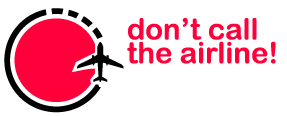Using Google Search to find things they don’t want you to know…
Online research skills are important. Knowing them helps you in school, in the workplace, and even in the travel hacking game. Although there are many dozens of search tools you should know about, I’m going to focus on just a couple and how you can use them to find promotions and other tricks that the airlines and hotel programs don’t want you to know about. I won’t publish any exact promotion here, however, I know of a couple interesting and hidden promotions going on right now that you can find using these tools.
Airlines and hotel programs tend to issue promotions in three ways: (1) targeting; (2) unique codes, and; (3) publicly accessible information. This article will focus on the third way: publicly accessible information. This is where promotions, either intending or not to be public, are published and made accessible on the internet. As you know, the internet is a very public forum.
Search engines have a search tool called “site:” What “site:” will do is show you all publicly available pages linked to that website. For example, if you searched “site:cnn.com” that would show you all the publicly available pages on CNN. Most search engines, including Google, Bing, and Yahoo, utilize the “site:” tool.
Along with the “site:” tool, you can filter your search with a particular phrase/word. For example, I might search “site:cnn.com + travel”, or if I wanted to see the word “travel” on the page, I would search “site:cnn.com + “travel”.
If I know that a particular website puts all their promotions under the folder “promos,” I might search “site:cnn.com/promos + “travel.” This would show me everything with the word “travel” in the promos folder of CNN.
Note that some websites restrict the parts of their website that are displayed when using the “site:” tool by placing a restriction in their robots.txt file. What that file does is tell a search engine to not “crawl” or display any listed pages. Some search engines are better than others at observing robots.txt restrictions.
How can we use this information for travel? Many programs, (for example, think of a major Canadian chain…) publish their promotions publicly. Although these promotions are intended for certain people, they have published them in the public domain. A great example is when BMO released a promotion that was intended for a small group of customers, which was then used by many unintended participants.
I often use this trick to search for previous or upcoming promotions. By doing so, I am able to participate in promotions that would otherwise be inaccessible to me. Remember that this information has been published in the public domain. However, never access information that you are, either by technical or other reasons, restricted from accessing.


One Comment